Making a Difference: Notre Dame grad Sheila McCarthy's journey to leading Motels4Now
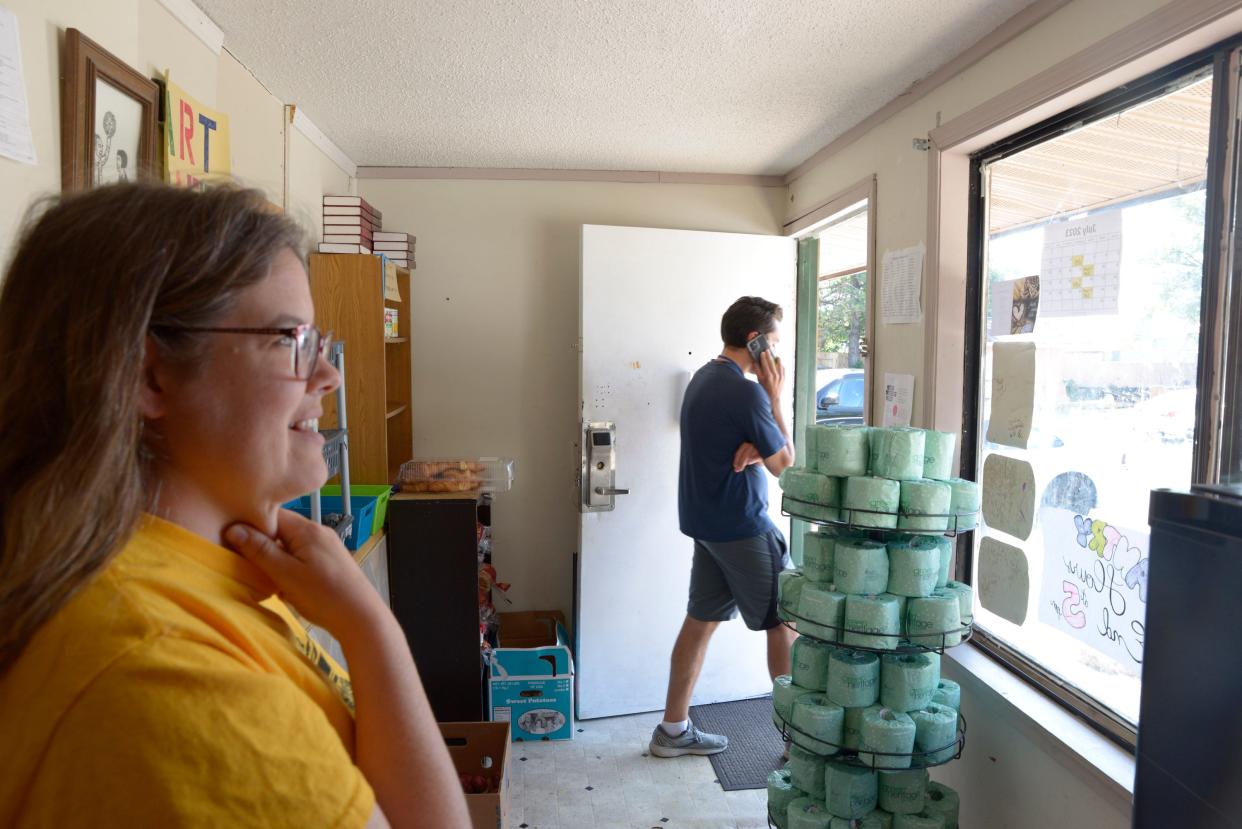
Editor's note: For five weeks, we are profiling two women each week who are making a difference in the South Bend region. Whether they are already in the spotlight or escaping much public attention for their efforts, these women are putting in the work to make their neighbors' lives better. Check them out every Wednesday and Friday through Aug. 4.
SOUTH BEND — Growing up near Boston in the 1980s, Sheila McCarthy saw the beginning of the modern era of homelessness.
The U.S. was rebounding from its worst recession since the Great Depression. Unemployment spiked to 10.8% at the end of 1982 and stayed high throughout the decade.
In cities, affordable housing became sparse. The budget for federal housing assistance shrunk by 40%. Large numbers of people with mental illnesses left poorly staffed psychiatric hospitals and, without adequate services or cheap housing, ended up on the streets or in shelters.
Tabled in committee: South Bend councilors choose not to make 'homelessness' a class protected from discrimination
Raised Catholic, McCarthy, now 44, remembers feeling puzzled as she rode through metro Boston with her father. They passed through neighborhoods where he would lock the doors when the car slowed down.
Growing up, she absorbed from scripture that Christians were meant to care for people who are poor and vulnerable. Her family was in the upper middle class. She struggled to understand how the world on the other side of the window could exist.
“I was like, 'Oh, I need to do something about this,'" McCarthy said. "'No one else is doing something.'"
In high school, that mindset led her to start a group of students who volunteered at homeless shelters in metro Boston. It led her to years in the Catholic Worker movement, where she lived in voluntary poverty and provided food and shelter for people who otherwise would have been destitute.
And in fall 2020, decades after those Boston neighborhoods ignited her urge to do something, McCarthy became the director of Motels4Now, a low-barrier homeless shelter in South Bend that serves about 115 people.
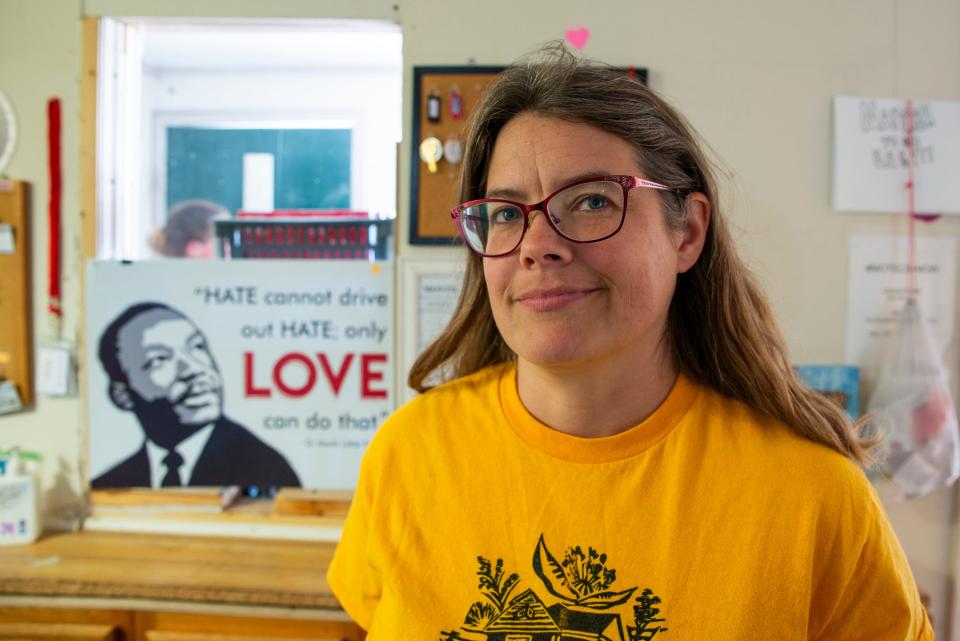
Motels4Now uses a housing-first approach that's increasingly shown to reduce homelessness rapidly and cost-effectively while improving long-term stability.
Guests don’t have to prove that they don't use drugs or alcohol in order to be accepted. The program offers them a room, often shared with another person, where they can sleep in a bed, use a bathroom, wash up in a shower and store their belongings safely. Counselors and physicians visit regularly to provide health care. A housing coordinator helps people to find permanent, affordable options.
The average stay is about six months; the figure accounts for a third of guests who need multiple stays to find stability. The longer a person stays, McCarthy said, the better they tend to do in their next living arrangement. The program has placed about 175 people in permanent housing.
A society 'where it is easier for people to be good'
After high school, McCarthy came to Notre Dame to study theology. But once she graduated, her longing to help with her hands and not just her head drove her to join the Catholic Worker movement.
The Worker began as a newspaper, founded in the 1930s by French activist Peter Maurin and Dorothy Day, an American journalist who sought to continue her social activism after converting to Catholicism. The paper shared Catholic social teaching as an alternative to communism, advocating for pacifism and rebuking inequality in the U.S. economic system.
The movement evolved beyond ideology and gave way to houses and farms where volunteers chose to live in poverty and take in people who were homeless. It’s grown to include more than 200 sites across the world, including the St. Peter Claver Catholic Worker, founded in 2003 in South Bend’s Monroe Park neighborhood.
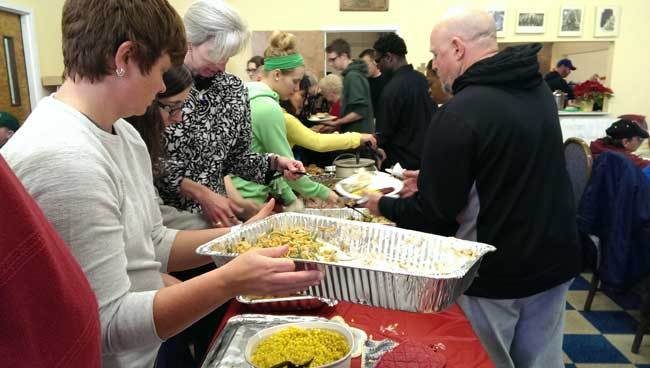
The local Worker runs two live-in houses of hospitality, one for men and one for women, as well as a drop-in site at Our Lady of the Road on Main Street. Dozens of guests go there a few days a week to eat breakfast, do laundry, take a shower and rest.
Worker houses attract idealists like McCarthy who believe that members of a community are personally responsible for ensuring one another's basic needs are met. Maurin famously said he wanted to build a society "where it is easier for people to be good."
“The Catholic Worker just kind of made sense of everything I wanted to do," McCarthy said, "which was to live simply, close to the land, in a faith community with people experiencing poverty.”
She spent nearly a year at a Worker community in Los Angeles, working on Skid Row, and three years at a couple of sites in New York. She earned $15 a week in L.A. and $20 a week in New York City, where free rides on the Staten Island ferry became a favored leisure activity.
Though Worker communities feature intense Bible studies and intellectual discussions, McCarthy felt the pull to continue studying theology in school. She was glad for the respite from academia afforded by the works of mercy — feeding the hungry, giving drink to the thirsty, sheltering travelers. But she yearned to bolster her ideological foundation for that lifestyle.
She decided to attend Duke University, earning her master's degree in theology.
Afterward, advisers encouraged her to continue her studies in a doctoral program. But she wished to return to a Catholic Worker home, where community-building typically trumps personal academic or career pursuits.
One of the only places where it seemed feasible to do both was the St. Peter Claver house in South Bend, McCarthy said. So McCarthy returned to Notre Dame to earn a Ph.D. in theology.
A need for action leads to a new homeless shelter
After finishing her degree in 2015, McCarthy taught some theology and writing courses on campus. She became an instructor with the Moreau College Initiative, which allows men incarcerated at the Westville Correctional Facility to earn an associate or bachelor's degree through Holy Cross College.
Then 2020 came. South Bend was paying to run an isolation and quarantine site for homeless people at a Motel 6 in Roseland. At the recommendation of Margie Pfeil, a Notre Dame theology professor and a founder of the local Catholic Worker, McCarthy agreed to be a co-director.
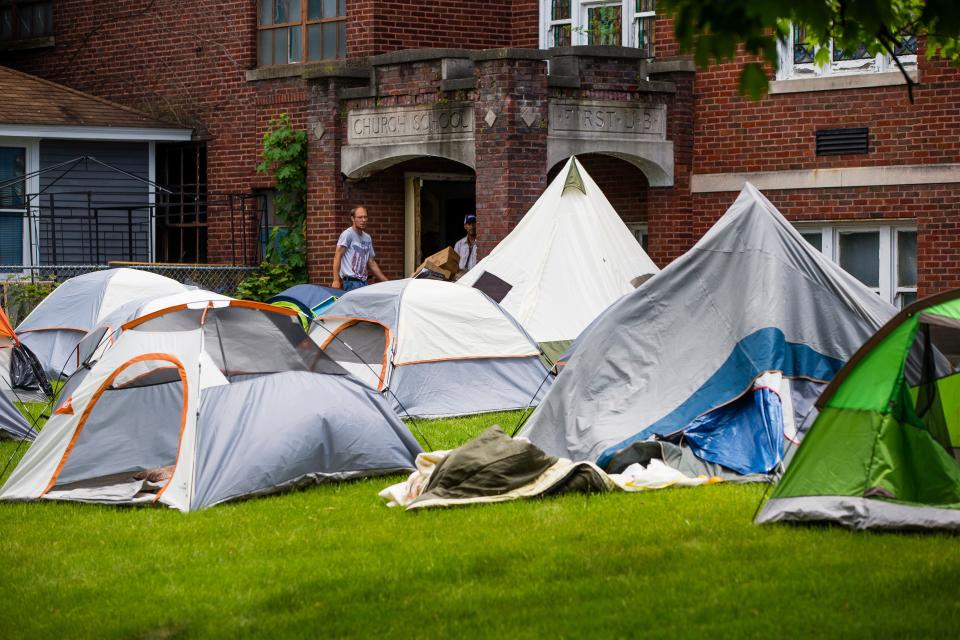
When South Bend's weather amnesty program ended April 30, visible homelessness surged downtown. That summer, South Bend officials ordered a homeless camp to disperse four times.
From the Catholic Worker house in Monroe Park, Pfeil said she could see more than 100 people living in the heat, lacking access to any toilets or drinking water. Two children were born to mothers in the shifting tent encampment, Pfeil said.
Pfeil and other homeless advocates were in discussion with city officials to figure out how federal relief money might be used to house people. Three months passed without a clear path forward.
But two longtime supporters of Our Lady of the Road agreed to give $60,000 to fund a short-term solution. Advocates worked to house more than 80 people in motel rooms across South Bend by the end of September.
The successful pilot program led St. Joseph County officials to fund what would from thereon be called Motels4Now.
All the program needed was a director.
'Someone's got to help'
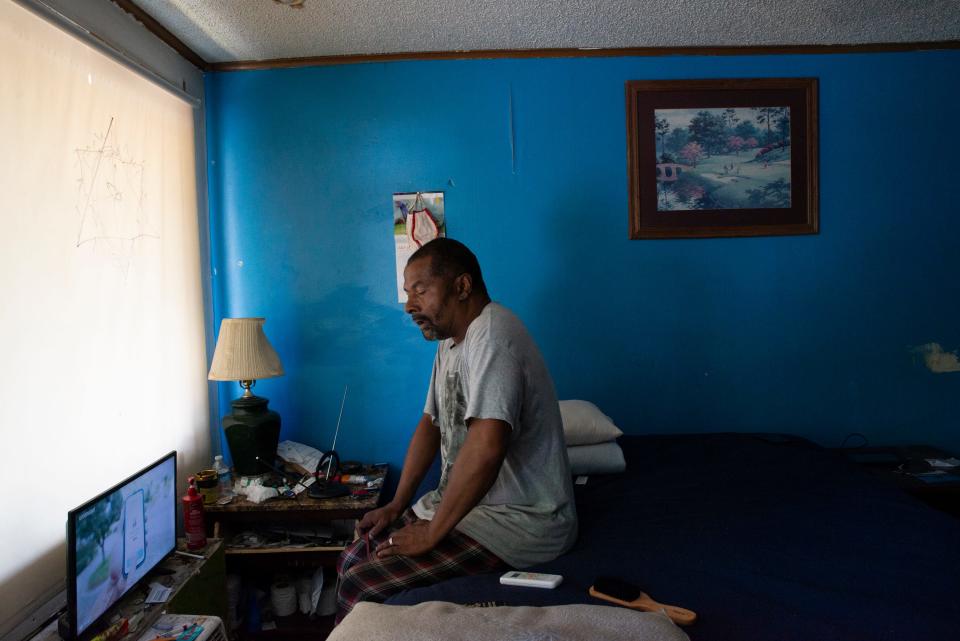
Pfeil met McCarthy at Notre Dame and came to know her well when they lived together at the local Worker. McCarthy has a keen eye for each person's gifts, Pfeil said, recognizing what role they might best play in a community.
Pfeil first noticed this during annual musicals that McCarthy would direct at Our Lady of the Road. She sees a parallel between those ensembles and the two-dozen person team McCarthy leads at the motel.
"She has an uncanny knack for casting — it's just amazing," Pfeil said. "In a way, putting together what it takes to build out this program involves a lot of discernment about people's gifts and where they might best fit and how they can contribute.”
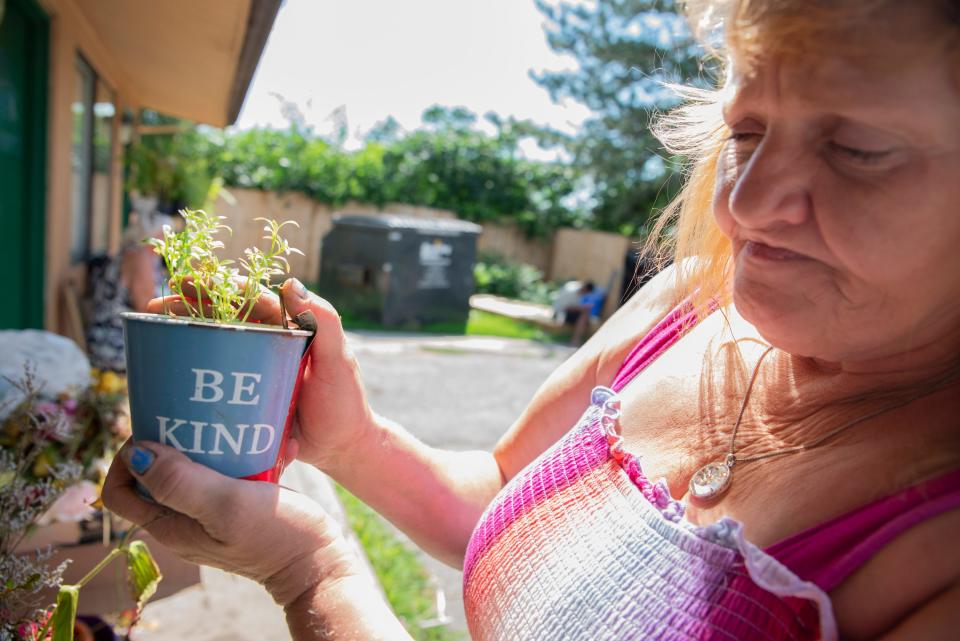
From her time living at the Worker, McCarthy has known many of the Motels4Now guests for over a decade. She sees transformations in people she used to talk with over breakfast and coffee at Our Lady of the Road.
Once people have a room with a lock and a key, she said, their faces tend to gradually soften. Their shoulders relax. Their behavior becomes less erratic.
“All those years at Our Lady of the Road, we know what people are lacking is a house,” McCarthy said. The work was “in the name of homelessness, but all we could do was hand out towels and pour coffee and couldn’t offer anyone (housing). But suddenly we could offer that, at least in a small way.”
But trauma and mental illness aren’t immediately assuaged with housing, so people sometimes lash out. Those who have been harmed find reasons to harm others, McCarthy said. Once a week, she must ask someone to leave.
Still, she retains an aura of calm. She's soft-spoken and chooses her words carefully. She used to teach yoga at the Elkhart County Jail, and she now teaches a class every Tuesday at Bend Yoga in downtown South Bend.
“So much of yoga is being able to witness your thoughts and to do that by controlling your breath," McCarthy said. "That’s what we are practicing and training for as a staff — not reacting to what people say, but breathing through it."
She’s all too aware of and dismayed by the public’s perception of people who are homeless. The motel has been a site of conflict with nearby neighbors who worry for their safety and business owners who say their bottom line has suffered.
Partially in response to that criticism, the St. Joseph County Council chose not to renew funding for Motels4Now this spring. That prompted the city of South Bend to offer $1.5 million for Our Lady of the Road to buy the site and continue its operations. McCarthy expects the money to last through next year while a permanent low-barrier shelter is planned for another site.
McCarthy believes there's a distinctly American — which is to say individualistic — fallacy that fuels the disdain many feel for their homeless neighbors.
Everyone hates to imagine that abject misfortune could strike them or their families. So the negative outcomes that befall others, the thinking goes, must be a matter of personal responsibility.
“I always encourage people to look at your own family,” McCarthy said. “I know there’s someone experiencing addiction or who has a mental illness who you are involved in the care for, however peripherally or directly.
"These are the folks who didn’t get to have that,” she added of Motels4Now guests. “So someone’s got to help.”
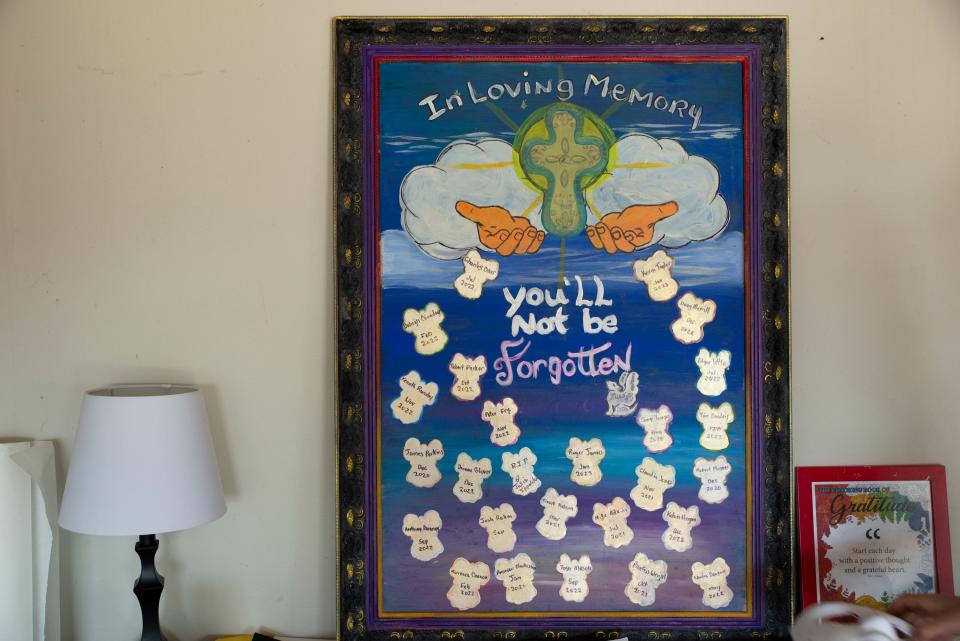
Email city reporter Jordan Smith at JTsmith@gannett.com. Follow him on Twitter: @jordantsmith09
This article originally appeared on South Bend Tribune: South Bend homeless shelter led by Notre Dame grad, Catholic Worker alum

